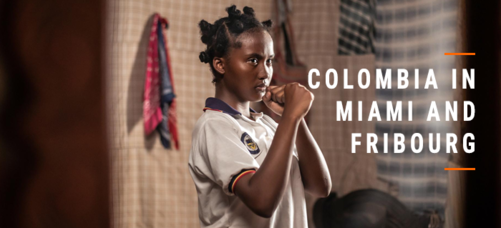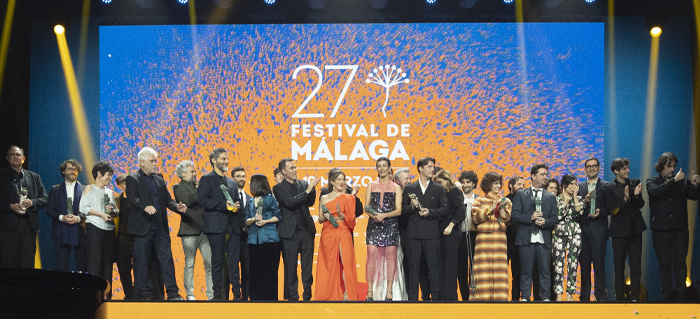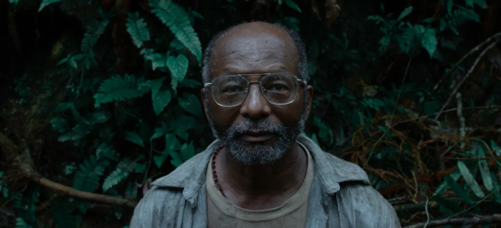
Colombia at the Malaga Festival
Pantalla Colombia No.: 129marzo 01 - 31 / 2024
The 27th edition of the Malaga Festival ended with the participation of the films Golán and Hasta que se apague el sol (Until the Sun Goes Out). Golán won the award for best cinematography, while Hasta que se apague el sol received two awards.

Founded in 1998, the Malaga Festival has consistently aimed to promote and showcase Spanish cinema, becoming an important national and international film event. It also plays a role in the cultural development of Malaga, confirming its identity as an open and vibrant city. This year marks the 27th edition of the festival, which presents the best works of Spanish cinema in various formats, along with tributes to important figures in the film industry and a host of accompanying events and exhibitions.
Representing Colombia was Orlando Culzat's film Golán, supported by the Film Development Fund - FDC. Golán portrays a journey of familial grief into the countryside, leading 15-year-old Pedro to profound realizations. Against a backdrop of toxic masculinity and a drug-ridden environment, Pedro forms a bond with Margarita, one of the farm workers. Through her, Pedro confronts his family's decline and wrestles with the choice of defying traditional values or conforming to societal norms. The film won the Silver Biznaga for Best Cinematography, credited to Juan Carlos Martínez.
Jonas Brander's documentary Hasta que se apague el sol (Until the Sun Goes Out) was screened in the Documentary/Fiction section of the Official Selection. The Colombian-German film was produced by Urua Films with a script by Catalina Flórez Ibarra and Jonas Brander. Cinematography by Jonas Brander, music by Jonas Meyer, and editing by Isabel Cristina Otálvaro and Jonas Brander. The cast includes Luz Marina Bernal and Albeiro Camayo, as well as the Indigenous Guard of Cauca and the theater group "Antigone, Tribunal of Women." The documentary follows Luz Marina, a Nobel Peace Prize nominee and mother seeking justice for the extrajudicial killing of her son, and Albeiro, an indigenous leader in southwestern Colombia defending his territory against armed groups and multinational corporations. Both are prominent social leaders in Colombia's post-conflict landscape.
The film received a Special Jury Mention in its category and shared the Silver Biznaga for Best Director with Carlos Essmann for Artefacto 71 (Artefact 71).
In addition, festival organizers had announced the inclusion of the Mexican-Colombian co-production El día es largo y oscuro (The Day is Long and Dark) by Julio Hernández Cordón in the Zonazine Feature Films category. However, the film was withdrawn shortly before the event began.
Finally, the sixth edition of Malaga Talent, part of MAFIZ, the industry section of the Malaga Festival, featured twenty young film and audiovisual talents from thirteen countries, including Colombian Karol Mora Albarracín. This year the mentoring team also included Colombian Andrés Bayona, director of the Bogotá International Film Festival.
In addition, the Malaga Short Corner, a platform that promotes and presents internationally the latest outstanding short films of the Spanish industry, welcomed Jaime E. Manrique, director of the Bogotá Short Film Festival / Festival de Cortos de Bogotá - Bogoshorts.
Proimágenes Colombia supported the Colombian delegation with Katalina Tobón as its representative.
Más noticias


